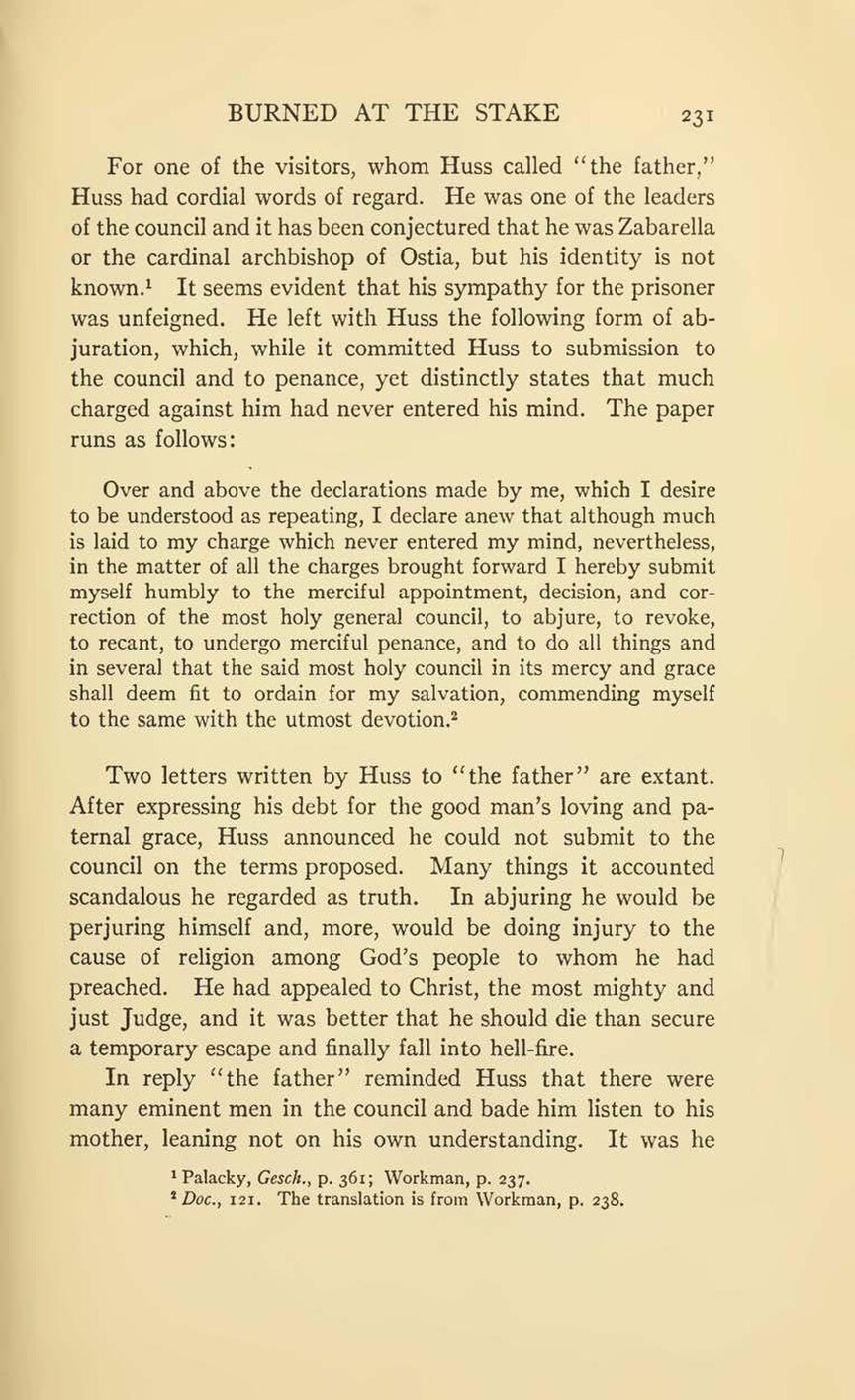For one of the visitors, whom Huss called “the father,” Huss had cordial words of regard. He was one of the leaders of the council and it has been conjectured that he was Zabarella or the cardinal archbishop of Ostia, but his identity is not known.[1] It seems evident that his sympathy for the prisoner was unfeigned. He left with Huss the following form of abjuration, which, while it committed Huss to submission to the council and to penance, yet distinctly states that much charged against him had never entered his mind. The paper runs as follows:
Over and above the declarations made by me, which I desire to be understood as repeating, I declare anew that although much is laid to my charge which never entered my mind, nevertheless, in the matter of all the charges brought forward I hereby submit myself humbly to the merciful appointment, decision, and correction of the most holy general council, to abjure, to revoke, to recant, to undergo merciful penance, and to do all things and in several that the said most holy council in its mercy and grace shall deem fit to ordain for my salvation, commending myself to the same with the utmost devotion.[2]
Two letters written by Huss to “the father” are extant. After expressing his debt for the good man’s loving and paternal grace. Huss announced he could not submit to the council on the terms proposed. Many things accounted scandalous he regarded as truth. In abjuring he would be perjuring himself and, more, would be doing injury to the cause of religion among God’s people to whom he had preached. He had appealed to Christ, the most mighty and just Judge, and it was better that he should die than secure a temporary escape and finally fall into hell-fire.
In reply “the father” reminded Huss that there were many eminent men in the council and bade him listen to his mother, leaning not on his own understanding. It was he
